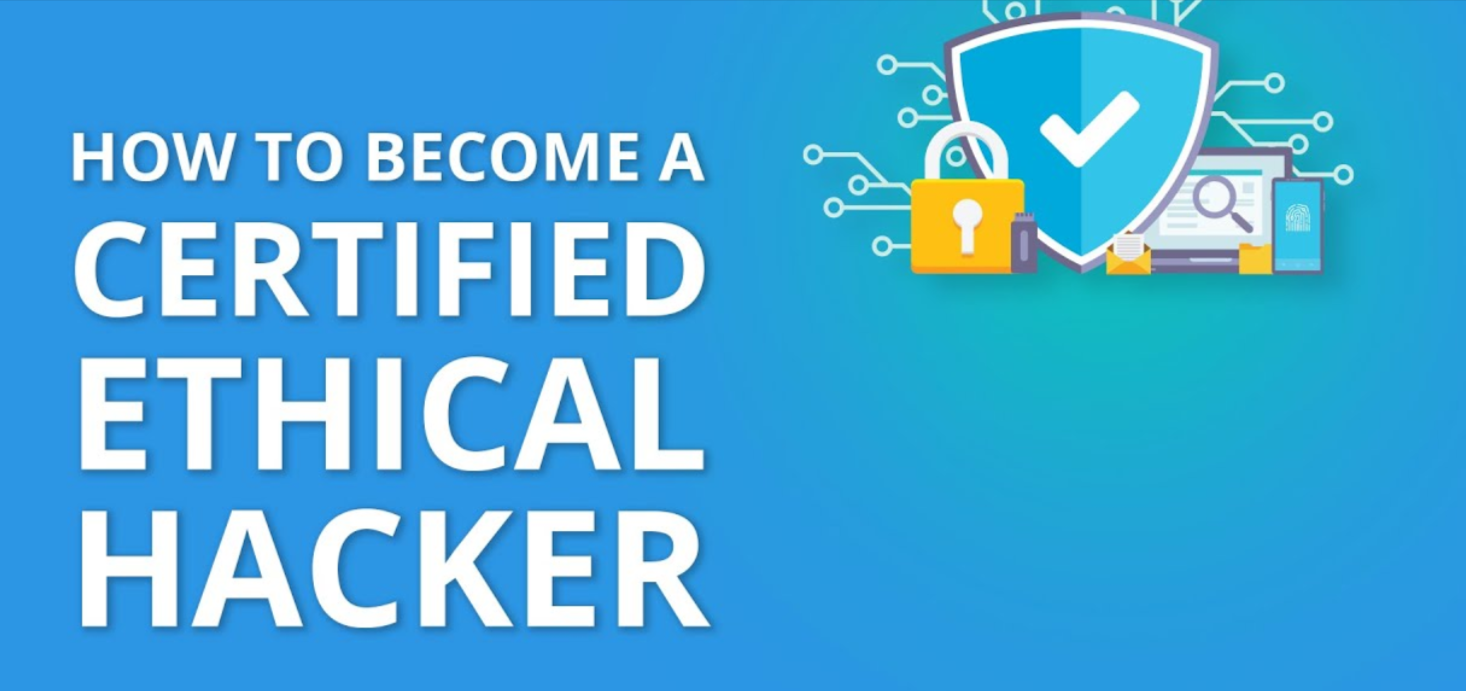How to Become an Ethical Hacker: Certifications & Career Path

Dreams of an ethical hacker? Guess what? Have a seat, then! I'm going to take you through all that you need to know to kick-start your career: skills to acquire, necessary certifications, various career paths you can pursue, and actions to be taken to propel yourself into the profession.
Low Show Ethics in Hacking
1.1 Ethical Hacking Defined
Ethical hacking is the legitimate testing of hardware and software systems like computer systems, networks, and applied application testing in order to find security flaws. The main defenders against cyber-attacks are these good-guy hackers hired by organizations that need some confidence in rebutting such attacks. They distinguish themselves from black-hat hackers, who use their evil prowess to close security gaps. Instead, ethical hackers push for the common good through the exercise of their will to power: regulating technocratic powers.
1.2 Jobs for an Ethical Hacker
So what actually does an ethical hacker have to do? Getting his sleeves rolled up, the ethical hacker gets down to doing the following:
Pen Tests—Tries to think like a criminal to find weaknesses.
Weakness Testing—Hunt for any weaknesses, even those already known.
Security Checks—To put things in order for acceptance into a great deal of cybersecurity stuff.
Countermeasure Recovery—Intervening after a breach to investigate and patch up the environment.
1.3 Why Ethical Hacking Would Be An Amazing Career Path
The Market Never Fails- With cybersecurity threats being on a rise, it goes without saying that it is an important field within the realms of ethical hacking.
Big Money-Dollars from 80,000 to 150,000an ethical hacker may fetch, more if you are experienced.
Never Boring-Security questions are posed every single day.
Forever- The ethical hacking community will survive as long as the cybercriminals do.
2. Important Skills Required for Ethical Hacking
2.1 Must Know Tech Stuff
Anything under the sun that would help in ethical hacking includes knowledge of IT stuff like:
Networking - A crash course in TCP/IP, DNS, firewalls, and VPNs would suit aspiring security testers.
Operating Systems- Know your way around Windows, Linux, and Mac as you will have multiple platforms to deal with.
Programming and Scripting- Knowledge of Python, Bash, C, and JavaScript will be invaluable to you for writing custom programs and scripts to ease your work.
Web Security- An understanding of SQL injection, XSS, and other web exploits is a must.
Cryptography - Part of encryption job is to understand how to protect secrets.
2.2 Soft Skills
Problem-Solving- An ethical hacker should adopt an inside attacker environment to see the weak points of a computer system.
Attention to Detail- Microsecurity glitches can cause a maximum attack into the system.
Continuous Learning- In the rapidly changing environment of cybersecurity, being up-to-date is crucial.
Ethical Thinking- The ethical hackers deal with sensitive data; thus, integrity and consistency should be their second nature.
Having a certification is likely to sway people and organizations to see your skill set as worthy and able to open the door for someone seeking employment.
Many certifications are offered in ethical hacking, but here are some top contenders:
3.1 Basic for Newbies
Starting out in the realm of cybersecurity? Here are some entry-level ones for you:
CompTIA Security+ talks about essential things like the measures of safety, how networks operate, and managing threats.
Cisco Certified CyberOps Associate is about defending operational tasks and reacting to security incidents.
ISC²'s Certified in Cybersecurity (CC) gives proper footing to the beginners by teaching them the fundamental concepts of cybersecurity.
3.2 Intermediate
So you have the basics? Let's go one step further and consider certifications that concentrate more on the ethics of hacking:
Certified Ethical Hacker (CEH)- This well-recognized credential covers training in the tools and techniques for security testing.
Offensive Security Certified Professional (OSCP)- A practical certification in which you must compromise one hacking challenge over a whole day, about 24 hours straight.
GIAC Penetration Tester (GPEN)- It teaches you the advanced skills and techniques for penetration testing.
Advanced Certifications
Advanced certifications that help professionals concentrating more in his field:
Certified Information Systems Security Professional (CISSP) - This is a high-level credential if you manage security.
Offensive Security Experienced Penetration Tester (OSEP) - This certificate is intended for professionals who go deep into real attack situations.
Certified Red Team Operator (CRTO) - It goes into red team strategies and how to replicate your adversary's movements.
Surely those certs tell them you know your stuff, but getting your hands dirty is just as important.
4. Career Tracks for Ethical Hackers
Ethical hacking's got many different pathways for jobs. Here goes the way on how to follow:
4.1 Rookie (0-2 Years of Practice)
You start with some IT basics: Networking-how the Operating Systems work-and fundamentals of Security.
Grab some work badges-the CompTIA Security+, Cisco CyberOps Associate is nice for credential.
Get some fieldwork: Set up your tech sandbox, mess around with Kali Linux, Metasploit, and Wireshark, for good hacking practice.
4.2 Intermediate (2-5 Years in the Game)
Forward your hacking credentials-CEH, OSCP, GPEN should be your target for the résumé.
Get into the security business: Target Security Analyst, SOC Analyst, or Penetration Tester jobs.
Start hunting bugs-Hack at HackerOne and Bugcrowd to skill up in a truly professional way.
4.3 Expert Level (More than 5 years)
Consider pursuing more complicated certificates, - CISSP OSEP, CRTO, to name a few.
Develop a focus area – Select paths like red team operations dissecting malware, the science of digital forensics, or advising on security matters.
Progress to higher positions – From Security Architect, steer a team as a Cybersecurity Manager, or take charge as Chief Information Security Officer (CISO).
5. Implements Used by Ethical Hackers
Ethical hackers use many implements in their security checks; a few include:
Kali Linux- Comes bundled with many automated tools for security checks.
Metasploit- A very strong tool set for system security tests.
Burp Suite- Use for web app security testing.
Wireshark- For viewing and analyzing network traffic.
John the Ripper- Break password hashes with it.
Nmap- It scans networks to see which devices are present and what ports are open.
These are the basic tools in which ethical hackers hone their skills.
6. Find out how you will get Practical Skills
6.1 Create a Personal Lab
Construct a virtualized fake computer set with VirtualBox or VMware. Then load it with unsecured operating systems, like Metasploitable, DVWA, and Kali Linux. Doing this you will have a safe area to practice good-guy hacking.
6.2 Enter Bug Bounty hunts.
Bug bounty sites allow you to search for vulnerabilities in applications from the real world-they permit you to legally poke. Take a look at some of these sites:
HackerOne
Bugcrowd
Synack Red Team
If you discover some bugs in security, then likely very big bucks will roll in.
6.3 Dive into Capture The Flag (CTF) Face-offs
CTFs are like obstacle courses for cyber-defenders where you can sharpen your hacking talents. Wanna try? Look at these spots:
Hack The Box
TryHackMe
CTFtime
Competing helps sharpen your problem-solving abilities and widens your understanding of cyber protection tactics.
7. Ethical Hacking Career Paths
People who hack for good can take up a bunch of different jobs, like:
Penetration Tester - They launch fake cyberattacks to find weak spots.
Security Analyst - This person watches over and protects networks against online dangers.
Red Team Operator - They pull off complicated attack re-enactments to check how tough a company's digital walls are.
Cybersecurity Consultant - They dish out advice to businesses on how to be security smart.
Forensic Analyst - When there's a cybercrime or someone breaches security, this person dives in to figure out what went down.
When they get more experience ethical hackers can level up their game. They might land better-paying jobs such as Cybersecurity Manager or jump all the way to the top as a CISO.
So, wrapping this up.
If you're interested in getting into ethical hacking, it has to be an all-or-nothing situation. This is about developing advanced skills and then putting yourself in a continued learning mode. Take your first step in getting to grips with how networks and security work. Get some certifications like CEH or OSCP, and crush some labs, try your luck in the bug bounty programs, or test your skills in CTFs. Be persistent, and believe me, ethical hacking can be a very rewarding career with many doors swinging open in front of you.

